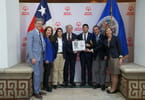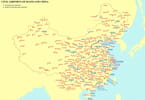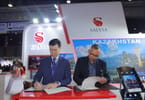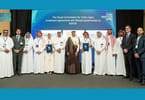This brevity was justified by the desire that Spain, the home country of the organization, manifested that the session of the Executive Council coincide with the realization of the FITUR Fair in Madrid, and this led to the choice of dates of January 18-19.
The pandemic made it necessary to postpone the Fair to May. It might seem logical that maintaining the connection between the two events, the vote was also moved to May. Such a request was not accepted. Indeed, a quite unusual fact occurred, namely profound perplexities about the procedure and the timetable were publicly expressed in cautious diplomatic language although not without implications by Mr. Frangialli and Mr. Taleb Rifai, the Secretary General who followed him in his office from 2009 to 2017.
It is not necessary to resort to Hegel to understand the rationality of this reality and understand how it was possible to ignore the authoritative opinions of the last two Secretary Generals.
The insistence on keeping the vote in January was interpreted by many as a tool that could facilitate re-election of Mr. Pololikashvili and was criticized as being far from the impartiality that must at all times ensure the highest office of an international body.
The rejection of the change requests did not result in the absence of alternative candidacies only because Bahrain was able to present the authoritative candidacy of HE Mai Al Khalifa, but according to many, it also had another purpose – to make it difficult for many countries to be represented in the vote at the highest level with their ministers of tourism forcing them to fall back on representation through the ambassadors who moreover are not all residents in Spain.
It might seem that it doesn’t really matter if a country is represented by its tourism minister or its ambassador. It is not so. The secrecy of the vote can allow voters personal choices. In this regard, what the former Secretary General Frangialli writes in an article of memoirs available online is illuminating: “But some heads of delegation are family members of the UNWTO and may have their own inclinations. Perhaps more than in other comparable international institutions, the personal dimension comes into play.”
It would be naive to ignore that ambassadors in Madrid certainly have a habit of dealing with an official with whom they interacted during four years and who has a long history of presence in Madrid and in the organization and rule out that this could undermine their loyalty to the country represented.
This is not the only criticism of the outgoing Secretary General. It was pointed out that even before the date on which the candidacies were opened, many of his institutional actions seem to be part of an electoral campaign characterized by an intense selective program of visits, which favored the member countries of the Executive Council.
This sheds particular light on the intense program of his official visit to Italy last July, motivated by the launch of the #RestartTourism campaign, “a global initiative through which the OMT intends to favor the reopening of the borders to tourism and the recovery economic through coordinated measures between the public and private sectors in full protection of the safety of citizens.” During his visit, he met with President Conte; Ministers Di Maio and Franceschini; the President of Lombardy, Mr. Fontana; the Mayors of Rome and Milan, Ms. Raggi and Mr. Sala; and with the regional Minister for Tourism of Veneto, Mr. Caner. His attention to Italy was confirmed by the message of good wishes to Undersecretary Bonaccorsi for the beginning of the Italian presidency of the G20.
So much interest is understandable for Italy’s leading role in tourism, and also why not? Because last year, Italy was Vice-chair of the Executive Council of the OMT, and in this capacity, the guarantor of the transparency of the organization of this election.
The traditional active participation of Italy in the organizations of the United Nations system cannot fail to confirm that Italy refers and will refer to those principles of transparency, in this as in any election in international bodies, determining its choices with the double criterion of the interest of the organization and, of course, of the national one.
Compromising in an international organization considered to be minor means exposing oneself to being spectator of similar underground agreements in others and to the risk of seeing a controversial vote overturned at the time of its ratification by the General Assembly of the organization.
Therefore, on the basis of the foregoing, a moral suasion tending to postpone the vote is probably the minimum that can be expected from Italy.
However, it is possible that the vote will still take place, and this eventuality requires analyzing which of the two candidates is preferable, in the name of Italy’s interest.
We do not underestimate the possible interest in good relations with Georgia, which is easily understood by Italy’s relations with the Caucasian countries in the energy sector. However, equally and stronger reasons should rather suggest supporting HE Mai Al Khalifa’s candidacy.
There are geopolitical reasons in the first place. For Italy, the stability of the Mediterranean and the Middle East is crucial. Bahrain and the Gulf countries in general are important in the region. This may also have connection with the major regional initiative of the Eastern Mediterranean Gas Forum, and this would compensate for the previous observation in favor of Georgia.






















